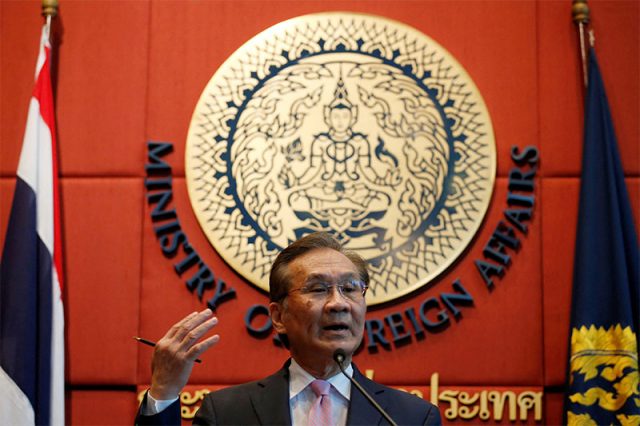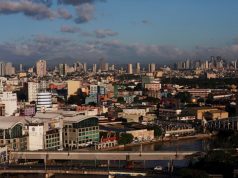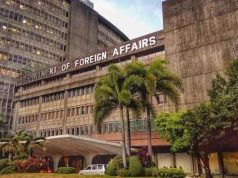
BANGKOK— Thailand’s effort to persuade its neighbors to re-engage with Myanmar’s ostracised ruling generals has received a lukewarm response, with concern that it could undermine the official peace effort of the Association of Southeast Asian Nations (ASEAN).
RELATED: Thais justify talks with Myanmar as key ASEAN members stay away
What’s happening in Myanmar?
Myanmar is mired in violence and instability stemming from the military’s 2021 coup and its lethal suppression of pro-democracy protests, during which hundreds of people have been killed and many thousands arrested, with widespread allegations of arbitrary detention, forced disappearances and torture.
A resistance movement allied with a shadow government and several ethnic minority armies has intensified guerrilla attacks on the military, which has responded with artillery and air strikes and has, according to United Nations experts, committed atrocities against the civilian population. The U.N. says more than a million people have been displaced. The junta says it is fighting “terrorists”.
What is ASEAN’s role?
The 10-member ASEAN bloc agreed to a peace plan with Myanmar’s junta two years ago, but there has been scant progress in advancing the “five-point consensus”, as the plan is known.
The bloc has barred Myanmar’s generals from joining ASEAN-hosted international summits until they demonstrate a commitment to implement the agreement, which includes ceasing hostilities, allowing inclusive dialogue and granting full access to humanitarian aid.
Patience is wearing thin within ASEAN and despite its policy of non-interference in members’ affairs, Indonesia, Singapore and Malaysia have taken a tough line with the junta in a series of uncharacteristically strong rebukes.
What was Thailand’s proposal?
In a letter seen by Reuters, Thailand’s foreign minister Don Pramudwinai at short notice invited ASEAN counterparts, including Myanmar, to an “informal dialogue” that would be “part of the initial steps” of the resuscitating peace process.
Don noted that one country had at last month’s ASEAN summit proposed the bloc “fully re-engage” the junta and that there was “no explicit dissenting voice”.
However, any such re-engagement would run counter to a decision by ASEAN leaders at that same summit to continue to sideline the junta.
What was the response?
Critics see the move by Thailand’s caretaker government as legitimizing the junta, going beyond its authority and undermining Indonesia’s effort as ASEAN chair as it cites progress in holding dozens of engagements with multiple stakeholders in the conflict.
There was no immediate confirmation on who attended Monday’s meeting, but the foreign ministers of Singapore, Indonesia, Malaysia, Vietnam, Cambodia and the Philippines had declined the invitation for various reasons. A source with knowledge of the meeting said Laos was the only country to send its top diplomat aside from Myanmar and host Thailand, while others sent junior representation.
Singapore’s foreign minister last week said that re-engagement would be premature, while Malaysia said it was important that ASEAN shows unity behind Indonesia’s peace effort.
In her response to the Thai invitation, Indonesia’s Foreign Minister Retno Marsudi, in a letter verified by Reuters, said there was no ASEAN consensus to “re-engage or develop new approaches” on Myanmar and it was “critical we safeguard existing momentum”.
Why is Thailand pushing re-engagement?
Thailand has a complicated relationship with neighboring Myanmar, historically a foe but now a source of border trade, migrant labor and natural gas, with close army-to-army ties and some lucrative Thai investments in Myanmar.
But it is unclear why, with only a few weeks left in office, Thailand’s caretaker government is going in to bat for Myanmar’s generals.
Foreign minister Don defended the move, saying Thailand was suffering in terms of its border, trade and refugee problems, comments echoed by Prime Minister Prayuth Chan-ocha, himself a former coup leader and junta chief, who insisted Thailand was not siding with Myanmar’s military.
—Reporting by Martin Petty; Editing by Hugh Lawson









